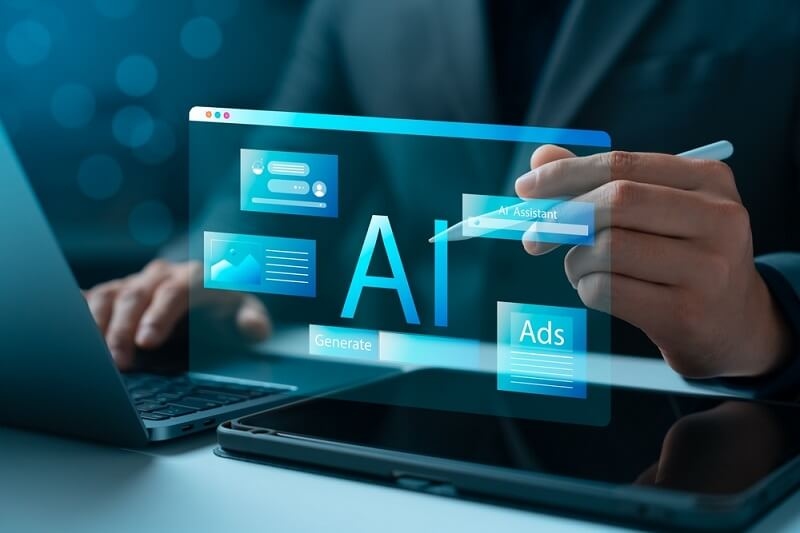How AI Literacy in Candidates has Impacted Job Opening 2025?

AI literacy is no more a skill that is optional in 2025, it is something that is essential for getting high paying job. From small businesses to large organizations, employers now want the candidates to have AI literacy.
Job description trends show that people that are able to use AI tools properly are more likely to get shortlisted. In this blog, you will learn how job opening 2025 has changed because of the rise of AI.
AI Skills Demand in Daily Work
AI skills demand is everywhere and it is not limited to the tech industry anymore. Doctors, teachers, designers, marketers, and even farmers are learning to use AI tools. Employers believe that AI can help workers save time, avoid mistakes, and make better decisions.
- A teacher may use AI to prepare lesson plans faster.
- A doctor may use AI to check patient notes and highlight important details.
- A designer may ask AI for new ideas for logos or posters.
- A manager may use AI to review reports in less time.
- A student may use AI to organize study material in a simple way.
These are small steps, but together they explain why AI skills demand is everywhere. A worker who knows how to use AI is seen as more ready for the future.
Why Employers Want AI literate Candidates

Employers are not asking people to become experts in coding. They do not expect everyone to create new AI systems. Instead, they want AI literate candidates which means people who know how to use AI in everyday work.
This has made AI literacy one of the most essential skills in 2025 for people to get a proper job.
AI literate candidates stand out because they show flexibility. They show they can adapt. They also show that they are not afraid of new tools. This makes them strong choices for most employers.
New Job Description Trends
When someone reads job description trends in 2025, they see the shift clearly. Old listings focused on degrees and years of experience. New listings focus on AI literacy. Employers want people who are open to change and who can use AI tools in work.
Some of the common job description trends include:
- Asking for knowledge of basic AI platforms.
- Expecting candidates to adapt quickly to new AI systems.
- Listing AI literacy as equal to communication and teamwork.
- Adding AI usage to both junior and senior roles.
- Making AI literacy part of performance reviews in some cases.
These job description trends make one thing very clear. The job market is preparing for a world where AI is normal, not special.
Why Hiring for AI Tools is Spreading
In 2025, employers are hiring for AI tools in almost every industry. They believe that AI can cut down on repeated tasks and give workers more time for creative or complex work.
A simple example can be seen in offices. A team member can use AI to check documents for mistakes before sending them. In customer service, AI can answer common questions, and the worker can focus on the harder ones. In design, AI can create samples, and the worker can polish them.
Hiring for AI tools is not just about saving time. It is also about improving quality. Employers know that workers who use AI carefully can do more in less time without lowering standards.
Why AI Skills Demand Keeps Rising
There are simple reasons why AI skills demand is rising every year.
- Employers want faster results in less time.
- AI helps reduce errors in tasks.
- Companies know that success depends on how well AI is used.
- Workers with AI literacy can adjust when tools change.
- AI reduces costs, so employers prefer workers who use it.
These points show why AI skills demand is not slowing down. It will keep growing in the future.
How to Prepare as AI Literate Candidates
Becoming AI literate is not as hard as it sounds because you can start with the small and basic tools.
First, practice with simple the AI tools online and use them to write short notes, create images, or organize tasks. Second, mention your experience of using AI in your resumes or interviews. You can write how your use AI tools to create reports or create presentations. Lastly, you need to stay updated because AI tools are changing quickly, and you need be aware of these changes to stay ahead of the competition.
AI literate candidates do not need to know everything. They just need to show that they can use AI with ease.
Impact of Job Description Trends on Growth
Job description trends are shaping careers in powerful ways. A person with AI literacy can grow faster in their job. They can take on leadership roles sooner because they bring speed and efficiency. They become the go-to person when new tools arrive.
On the other hand, people without AI literacy may struggle. They may find fewer job openings that match their skills. They may also feel left behind when teams switch to AI-based tools.
This is why schools and training centers are starting to include AI basics in lessons. They want to prepare students for the reality of job description trends in 2025 and beyond.
What Hiring for AI Tools Looks Like
Employers hiring for AI tools expect one key thing. They want workers who are curious. They want workers who try new features, who test new ideas, and who share what they learn.
Imagine a worker who discovers a faster way to check reports with AI. If that worker teaches the whole team, productivity grows for everyone. Employers value this kind of behavior. It shows teamwork, problem-solving, and initiative—all with the help of AI tools.
This kind of hiring for AI tools shows that the future workplace will not be humans versus AI. Instead, it will be humans with AI, working side by side.
AI Skills Demand and the Road Ahead
The road ahead is simple that is AI skills demand will keep growing. Job description trends will keep changing and hiring for AI tools will become a normal part of work. AI literate candidates are going to have an advantage moving forward.
Workers who build AI literacy now are not just preparing for job opening 2025. They are preparing for the next decade of work. The earlier they adapt, the smoother their journey will be.
Conclusion
The job opening 2025 listings are proof of a big change and employers no longer see AI as optional. Companies want AI literate candidates and expect them to keep up with the latest AI skills demand. They design job description trends that reflect this reality and focus on hiring for AI tools across industries.
For job seekers, the message is clear that is learning AI is now essential or else they will fall behind in the competition.
This content was created by AI
